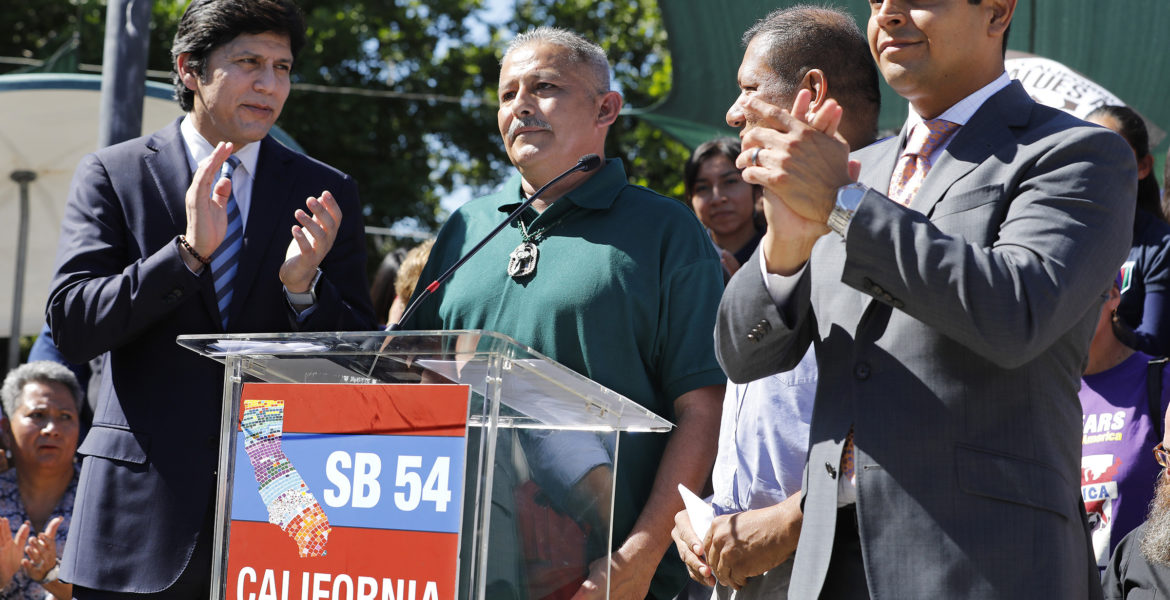No other issue has embattled voters more than immigration. In California, which is home to the largest undocumented immigrant population in the country, that issue has divided the state’s leaders along party lines, especially with the battle of SB 54, also known as the California Values Act which serves as the state’s “sanctuary” law.
Generally, “sanctuary” policies prohibit state officials and law enforcement from turning over information to federal immigration agencies that would lead to the capture and detention of unauthorized immigrants. These policies came to prominence following the election of President Donald Trump, who promised to toughen U.S. immigration policy and practices.
California Gov. Jerry Brown signed SB 54 into law and it went into effect on Jan. 1, 2018. Since then, the state has faced backlash from the Trump administration which filed a lawsuit against the state with the support of several conservative-leaning cities like Los Alamitos, Newport Beach and Huntington Beach, which launched its own lawsuit against the state.
As the national discourse over immigration policy continues to heat up, the war that has waged for sanctuary policies also become a key campaign issue for the midterm elections in November.
Republican candidate John Cox, a San Diego-area businessman, said that if he was elected governor, he would scrap SB 54.
“I won’t enforce it,” Cox said in April 2018. “Every public official should comply with the law. The alternative is chaos.”
Cox’s opponent, Lt. Gov. Gavin Newsom, has been vocal about his support for SB 54 and has pledged to stand up against the Trump administration.
“We cannot let this small, scared bully hurt our economy and turn ICE [Immigration and Customs Enforcement] into his own personal army of hate,” Newsom, the former mayor of the sanctuary city San Francisco, said in a tweet directed at Trump following the massive ICE operations in the state this year.
Earlier this month, a federal judge in California rejected the Trump administration’s lawsuit against the state SB 54 and AB 103, which allows the CA attorney general entrance into immigration detention facilities for inspection.
“Plaintiff’s argument that SB 54 makes immigration enforcement far more burdensome begs the question: more burdensome than what? The laws make enforcement more burdensome than it would be if state and local law enforcement provided immigration officers with their assistance. But refusing to help is not the same as impeding,” U.S. District Court Judge John Mendez wrote in his ruling, as previously reported by the Asian Journal.
“If history has taught us anything…it is more important to stand for what is right today than to apologize for our intentional unwillingness to act against wrong tomorrow,” said Chet Hewitt, president of Sierra Health Foundation, in the Sacramento Bee . “California’s sanctuary state posture is our collective voice of opposition and humanity in a time when a lot more of both are desperately needed.
Janet Napolitano, president of the University of California system and the former Secretary of Homeland Security under Obama, said that the sanctuary state law specifies the priorities of law enforcement without sacrificing public safety.
“The so-called sanctuary laws already contain some important exceptions where public safety is concerned,” said Napolitano, who also served six years as the governor of Arizona. “They simply prioritize how the state’s law enforcement resources will be used, leaving it to the feds to carry out immigration enforcement, which is inherently a federal issue. It is entirely appropriate for California to stand up for itself here.” (Klarize Medenilla/AJPress)










